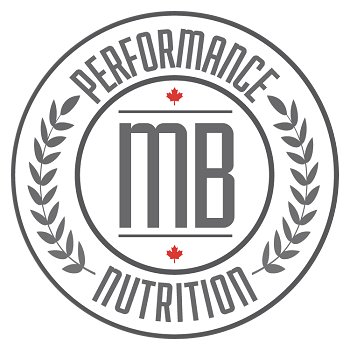Last updated on January 11th, 2024
Inflammation is the body’s natural response to injury. It show up as redness, swelling, increased mucus production, and all sorts of ailments ending in “-itis”. Indeed, though it’s a necessary immune response, excessive inflammation slows the healing process and causes all sorts of discomfort. Preventing the inflammatory process can have immediate impact on improved heart health, cancer prevention and recovery, and Alzheimer’s prevention. It also helps speed up recovery from sprains, strains, fractures, bruises, contusions, surgery and arthritis.
Conventional, allopathic medicine uses steroidal and non-steroidal anti-inflammatory drugs (NSAIDs) such as aspirin, acetaminophen, ibuprofen, or stronger pain-killers like naproxen or celecoxib. Unfortunately, these drugs come with a long list of common side effects such as constipation, nausea, vomiting, dizziness, water retention (edema), diarrhea, rashes, and headaches. In severe cases, kidney or liver failure as well as stomach ulcers can result from chronic use of drugs that reduce inflammation.
The good news is that there are many natural ways to “put out the fires” that cause pain and disease. Specific nutrients and herbs have long been known to be effective anti-inflammatory agents, however their use has been over-shadowed by Big Pharma. The best part about using nutrition to reduce or even prevent inflammation is that it not only tastes better, but comes with very few side effects. Here are a few natural remedies and the evidence that supports their use:
Vitamin C
A diet rich in sources of the bioflavonoid vitamin C could cut the level of markers for inflammation by 45 percent, according to a cross-sectional study, published in the March 2006 issue of the American Journal of Clinical Nutrition. High blood levels of vitamin C were associated with a 45 percent reduced risk of inflammation (with respect to C-reactive protein levels), and high fruit intake was related to a 25 per cent reduced risk of inflammation. In the US and Canada, men are recommended to consume 90 mg per day, and women 75 mg per day with the safe upper limit being 2,000 mg per day.
Vitamin D
According to a study in the Archives of Internal Medicine, 75 percent of North Americans do not get enough Vitamin D. Researchers have found that the deficiency may negatively impact immune function and cardiovascular health and increase cancer risk.
In July 2008, a University of Missouri nutritional sciences researcher found that vitamin D deficiency is associated with inflammation, a negative response of the immune system, in healthy women. The researcher says “this may explain the vitamin’s role in the prevention and treatment of inflammatory diseases, including heart disease, multiple sclerosis and rheumatoid arthritis.” Increased inflammation normally is found in people with obesity or chronic diseases. An increasing body of scientific evidence links small decreases in vitamin D levels to aggravation of symptoms in people who are already sick with chronic inflammatory conditions.
Only a few foods contain vitamin D naturally, making supplements an important source of this anti-inflammatory vitamin. Up to 10,000 IU vitamin D per day is safe under the supervision of a certified natural health practitioner.
Turmeric
Alzheimer’s and heart disease are syndromes of aging that share similar risk factors involving inflammation. Concerns over the safety of chronic use of non-steroidal anti-inflammation drugs (NSAIDs) led Dr. Greg Cole and his colleagues at UCLA to test curcumin from tumeric as an alternative to NSAIDs. Curcumin, as well as other natural agents like omega-3 DHA, were safe to use, efficacious, and found to be useful in preventing inflammation associated with aging in general. Dr. Cole’s team’s research suggests that, under conditions of elevated oxidative damage and inflammation, curcumin can reduce inflammatory markers at the cellular level.
Ginger
Ginger is now generating considerable interest for its potential to treat many aspects of heart disease, including the inflammatory aspect. A 2007 review in the International Journal of Cardiology suggests that ginger shows considerable anti-inflammatory, antioxidant, anti-platelet, hypotensive and hypolipidemic effect in human and animal studies. Human trials have been few and generally used a low dose with inconclusive results. One 2002 study, found a low dose of ginger (50 mg/kg) caused significant changes in the blood markers of inflammation. However, at higher doses of 5 grams or more per day demonstrate the significant anti-platelet, anti-inflammatory activity of ginger, a common kitchen spice.
Proteolytic Enzymes
Since the 1950s, scientists have known that proteolytic (“protein-breaking”) enzymes reduce inflammation by neutralizing the byproducts of inflammation to levels at which the synthesis, repair and regeneration of injured tissues can take place.
In one study, football players who suffered from ankle injuries found that proteolytic enzyme supplements accelerated healing and got the players back on the field 50 percent faster than athletes who received placebo tablets. Other medical trials have shown that supplemental proteolytic enzymes can help reduce inflammation, speed healing of bruises and other tissue injuries (including fractures), and reduce overall recovery time when compared to athletes taking a placebo.
Bromelain, a proteolytic enzyme found in pineapple, has commonly been used in sinusitis as an anti-inflammatory and mucolytic. A 2005 German clinical study found children with acute sinusitis (inflammation of the sinuses) exhibited statistically significant faster symptom recovery when given bromelain compared with usual sinusitis treatment. Bromelain dosage is typically 500-1,000 mg/day, with up to 2,000 mg/day commonly used with no adverse effects.
Glucosamine sulphate
Glucosamine sulfate is biochemically classified as a glycosaminoglycan with anti-inflammatory and immunoregulatory properties. In rabbits with chronic arthritis and atherosclerosis, oral dosing of this supplement reduced the markers of inflammation in the peripheral blood of the legs and arms, as well as the femoral and synovial membrane lesions. Glucosamine sulfate also prevented the development of inflammation-associated aortic lesions in the heart. This group rabbits received 500 milligrams of glucosamine sulfate per kilogram body weight per day.
Probiotics
The possibility that probiotics may be used to maintain remission in people with inflammatory conditions pouchitis, ulcerative colitis, and, to a lesser extent, Crohn’s disease (who have responded to antibiotics) was assessed in 2004 in two randomized, placebo-controlled trials using a special formula specific probiotic strains.
The formula contained four strains of Lactobacillus (L casei, L plantarum, L acidophilus, and L delbrueckii subsp. Bulgaricus), three strains of Bifidobacterium (B longum, B breve, and B infantis), and one strain of Streptococcus salivarius subsp thermophilus.
A once daily high dose this specific probiotic supplement was effective at keeping these digestive inflammatory diseases at bay after antibiotics eradicated the initial symptoms.
Mixed carotenoids
Carotenoid-rich diets are associated with reduced prevalence of asthma, an inflammatory respiratory disease. Australia researchers tested the effect of lycopene, a carotenoids in tomatoes, on 32 asthmatic adults. In this randomized, crossover trial, the adults with asthma were asked to consume a low antioxidant diet for 10 days, commenced a trial involving 3 x 7 day treatment arms (placebo, tomato extract (45 mg lycopene/day) and tomato juice (45 mg lycopene/day). With consumption of a low antioxidant diet, blood levels of carotenoid concentrations decreased – and asthma control worsened. Supplementation with both carotenoids-rich tomato juice and extract reduced airway neutrophil influx. Treatment with carotenoid tomato extract also reduced sputum neutrophil elastase activity.
Boswellin
Boswellin is a standardized Ayurvedic extract containing boswellic acids, the active constituents of the gum resins of the Boswellia serrata tree in India. In a 90-day, double-blind, randomized controlled study, a novel Boswellia serrata extract with 30% boswellic acid showed its potential anti-inflammatory properties in the treatment of osteoarthritis of knee. The subjects received either 100 mg or 250 mg of the boswellin extract daily or a placebo. At the end of the study, both doses of boswellin showed clinically and statistically significant improvements in pain scores and physical function scores in osteoarthritis patients. Interestingly, significant improvements in pain score and functional ability were recorded in the treatment group supplemented with 250 mg of this particular boswellin extract as early as one week after the start of supplementation.
Aged Garlic Extract
Like wine, garlic gets better with age – and extraction. Garlic that’s aged forms an antioxidant-rich extract that can help reduce the inflammatory factors involved in Alzheimer’s and heart disease.
Numerous research studies have shown that aged garlic extract scavenges oxidants, increases superoxide dismutase, catalase, glutathione peroxidase, and glutathione levels, and inhibits lipid peroxidation and inflammatory prostaglandins. It also reduces cholesterol synthesis by inhibiting 3-hydroxy-3-methylglutaryl-CoA reductase and is additive with prescription statins in its cholesterol-lowering action. Adding to it’s super list of anti-inflammatory actions, aged garlic extracts decrease homocysteine, lower blood pressure, and increases microcirculation, which is important in type 2 diabetes, where microvascular changes increase heart disease and dementia risks.
In Alzheimer’s, aged garlic extract also may help prevent cognitive decline by protecting neurons from neurotoxicity and apoptosis, thereby preventing ischemia- or reperfusion-related neuronal death and improving learning and memory retention, writes Dr. Carmia Borek from Tufts University in Boston, Massachusetts.
References:
Peterson, CA, et al. Serum tumor necrosis factor-alpha concentrations are negatively correlated with serum 25(OH)D concentrations in healthy women. J Inflamm (Lond). 2008 Jul 24;5:10.
Cole GM, et al. Prevention of Alzheimer’s disease: Omega-3 fatty acid and phenolic anti-oxidant interventions. Neurobiol Aging. 2005 Dec;26 Suppl 1:133-6. Epub 2005 Nov 2.
Nicoll R, et al. Ginger (Zingiber officinale Roscoe): a hot remedy for cardiovascular disease? Int J Cardiol. 2009 Jan 24;131(3):408-9. Epub 2007 Nov 26.
Thomson M, et al. The use of ginger (Zingiber officinale Rosc.) as a potential anti-inflammatory and antithrombotic agent. Prostaglandins Leukot Essent Fatty Acids. 2002 Dec;67(6):475-8.
Braun JM, et al. Therapeutic use, efficiency and safety of the proteolytic pineapple enzyme Bromelain-POS in children with acute sinusitis in Germany. In Vivo. 2005 Mar-Apr;19(2):417-21.
Proteolytic enzymes in inflammation: rationale for use. Postgrad Med. 1956 Jan;19(1):16-22
Buck JE, Phillips N. Trial of Chymoral in professional footballers. Br J Clin Pract. 1970 Sep;24(9):375-7.
Craig RP. The quantitative evaluation of the use of oral proteolytic enzymes in the treatment of sprained ankles. Injury. 1975 May;6(4):313-6.
Fisher JD, Weeks RL, Curry WM, Hrinda ME, Rosen LL. Effects of an oral enzyme preparation, Chymoral, upon serum proteins associated with injury (acute phase reactants) in man. J Med. 1974;5(5):258-73.
Largo, R, et al. Effect of a high dose of glucosamine on systemic and tissue inflammation in an experimental model of atherosclerosis aggravated by chronic arthritis. Am J Physiol Heart Circ Physiol 297: H268-H276, 2009. First published May 1, 2009
Mimura, T et al. Once daily high dose probiotic therapy (VSL#3) for maintaining remission in recurrent or refractory pouchitis. Gut. 2004;53:108–114.
Wood, LG, et al. Lycopene-rich treatments modify noneosinophilic airway inflammation in asthma: proof of concept. Free Radic Res. 2008 Jan;42(1):94-102.
Sengupta K, et al. A double blind, randomized, placebo controlled study of the efficacy and safety of 5-Loxin for treatment of osteoarthritis of the knee. Arthritis Res Ther. 2008;10(4):R85. Epub 2008 Jul 30.
Borek C. Garlic reduces dementia and heart-disease risk. J Nutr. 2006 Mar;136(3 Suppl):810S-812S


